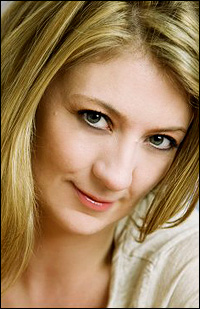This week the Long Wharf’s world premiere of Heidi Schreck’s The Consultant opens officially on Wednesday, January 15. See our preview here. This week as well the Yale Cabaret resumes its 46th season with Have I None, a daunting play by British playwright Edward Bond from 2000. Set in 2077, the play darkly imagines a dystopia in which memory, and therefore history, has been erased. Jessica Holt, 2nd-year YSD director and Artistic Director for the Yale Summer Cabaret, 2014, will stage the claustrophobic play with stress on Bond's sense of the absurd. January 16-18.
Next week, on January 23, from 5:30 to 8:30, celebrated local theater troupe A Broken Umbrella Theatre will host a fundraiser at the Eli Whitney Museum and unveil details about their latest venture. As usual, the project is an original play based on historical figures, facts, and locales of New Haven. If You Build It, the new play, focuses on inventor A. C. Gilbert to celebrate the 100th anniversary of his most famous creation: the Erector Set. Director Ruben Ortiz, playwright Charlie Alexander, and cast members will present an excerpt of the work in progress.
The build up of the production will be complemented by an evening of treats and toys: Small Kitchen Big Taste will be serving “architectural food,” including slider and mashed potato stations to build-your-own-cupcakes, Thimble Island Brewery will feature locally crafted beers, and ABU's Chrissy Gardner and the Moody Food Trio will provide musical accompaniment. Guests are invited to try their hand at the engineering feat of Erector Set construction along with ABU’s crew of welders, carpenters and electricians.
A Broken Umbrella Theatre has presented site specific works in New Haven for the last five years and enjoyed perhaps their greatest triumph at last year’s Arts and Ideas Festival with Freewheelers. Come out, sneak a peak at their next production, become a patron, and have fun.
For more information, please visit www.abrokenumbrella.org, or contact Rachel Alderman at: 203.823.7988 or rachel@abrokenumbrella.org
Next week as well will see the 10th show of the season at the Yale Cabaret: 3rd-year YSD actress Elia Monte-Brown’s original play, The Defendant, about the rigors of public school in New York (where Monte-Brown taught); the play aims to recreate some of the anxieties of today’s student, and to question the values of public education in America, using all 1st year actors in the YSD program. January 23-25.
And on the last week of the month, January 31st, previews begin for the Yale Repertory Theatre’s next production: The Fairytale Lives of Russian Girls, a world premiere from Whiting-Award winning playwright, and recent YSD graduate, Meg Miroshnik. Miroshnik's play, directed by two-time OBIE-Award-winning director Rachel Chavkin, who previously directed an Off-Broadway production of the celebrated musical Natasha, Pierre, and the Great Comet of 1812, is set in 2005 as a twenty-year-old girl named Annie returns to her native Russia. Underneath the glamor of a Post-Soviet Moscow bedecked with high ticket consumer goods, Annie discovers a land of enchantment straight out of a fairytale, with evil stepmothers, wicked witches, and ravenous bears.
The Fairytale Lives of Russian Girls opens officially on February 7, and runs til February 22.

